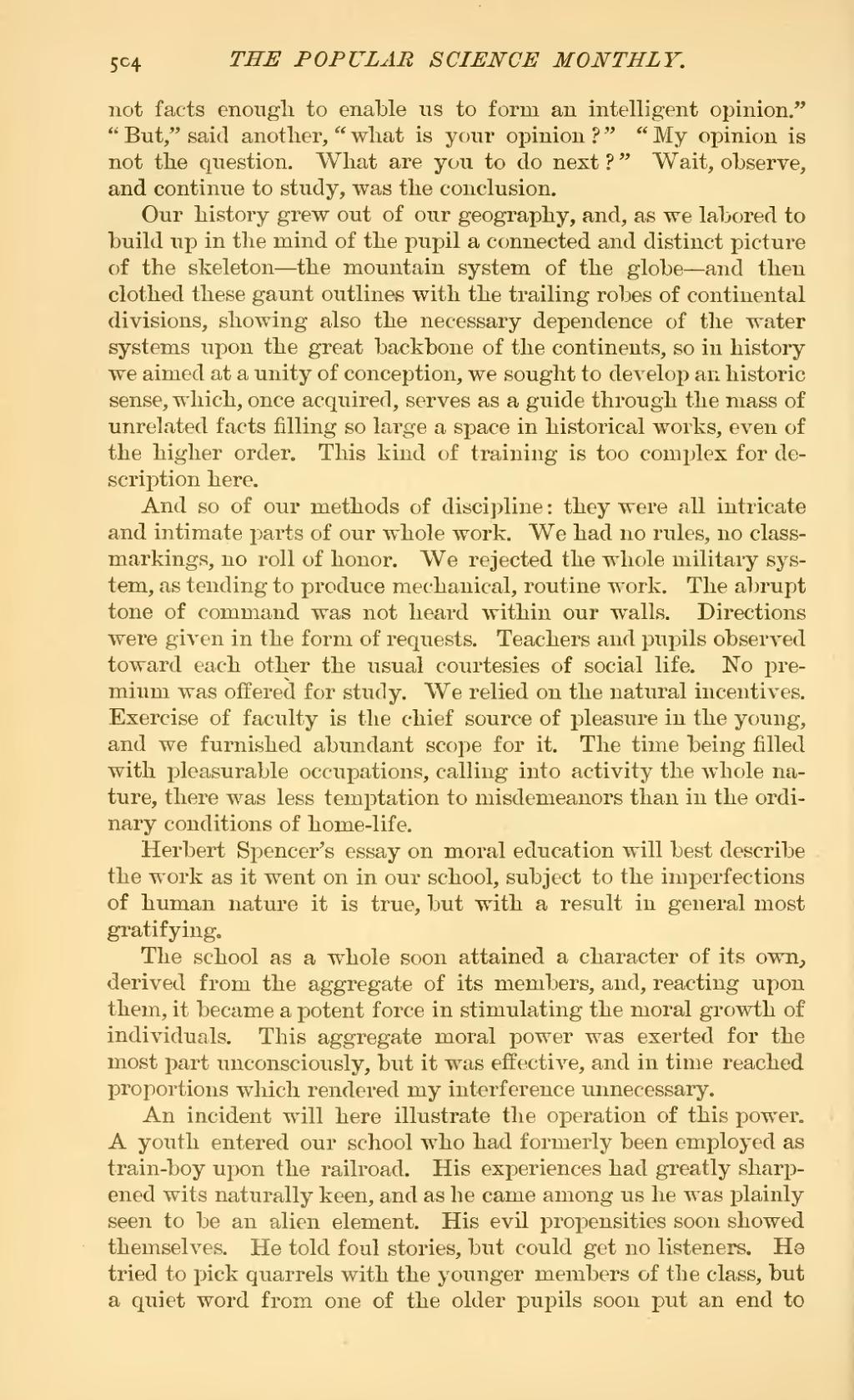not facts enough to enable lis to form an intelligent opinion." "But," said another, "what is your opinion?" "My opinion is not the question. What are you to do next?" Wait, observe, and continue to study, was the conclusion.
Our history grew out of our geography, and, as we labored to build up in the mind of the pupil a connected and distinct picture of the skeleton—the mountain system of the globe—and then clothed these gaunt outlines with the trailing robes of continental divisions, showing also the necessary dependence of the water systems upon the great backbone of the continents, so in history we aimed at a unity of conception, we sought to develop an historic sense, which, once acquired, serves as a guide through the mass of unrelated facts filling so large a space in historical works, even of the higher order. This kind of training is too complex for description here.
And so of our methods of discipline: they were all intricate and intimate parts of our whole work. We had no rules, no class-markings, no roll of honor. We rejected the whole military system, as tending to produce mechanical, routine work. The abrupt tone of command was not heard within our walls. Directions were given in the form of requests. Teachers and pupils observed toward each other the usual courtesies of social life. No premium was offered for study. We relied on the natural incentives. Exercise of faculty is the chief source of pleasure in the young, and we furnished abundant scope for it. The time being filled with pleasurable occupations, calling into activity the whole nature, there was less temptation to misdemeanors than in the ordinary conditions of home-life.
Herbert Spencer's essay on moral education will best describe the work as it went on in our school, subject to the imperfections of human nature it is true, but with a result in general most gratifying.
The school as a whole soon attained a character of its own, derived from the aggregate of its members, and, reacting upon them, it became a potent force in stimulating the moral growth of individuals. This aggregate moral power was exerted for the most part unconsciously, but it was effective, and in time reached proportions which rendered my interference unnecessary.
An incident will here illustrate the operation of this power. A youth entered our school who had formerly been employed as train-boy upon the railroad. His experiences had greatly sharpened wits naturally keen, and as he came among us he was plainly seen to be an alien element. His evil propensities soon showed themselves. He told foul stories, but could get no listeners. He tried to pick quarrels with the younger members of the class, but a quiet word from one of the older pupils soon put an end to
